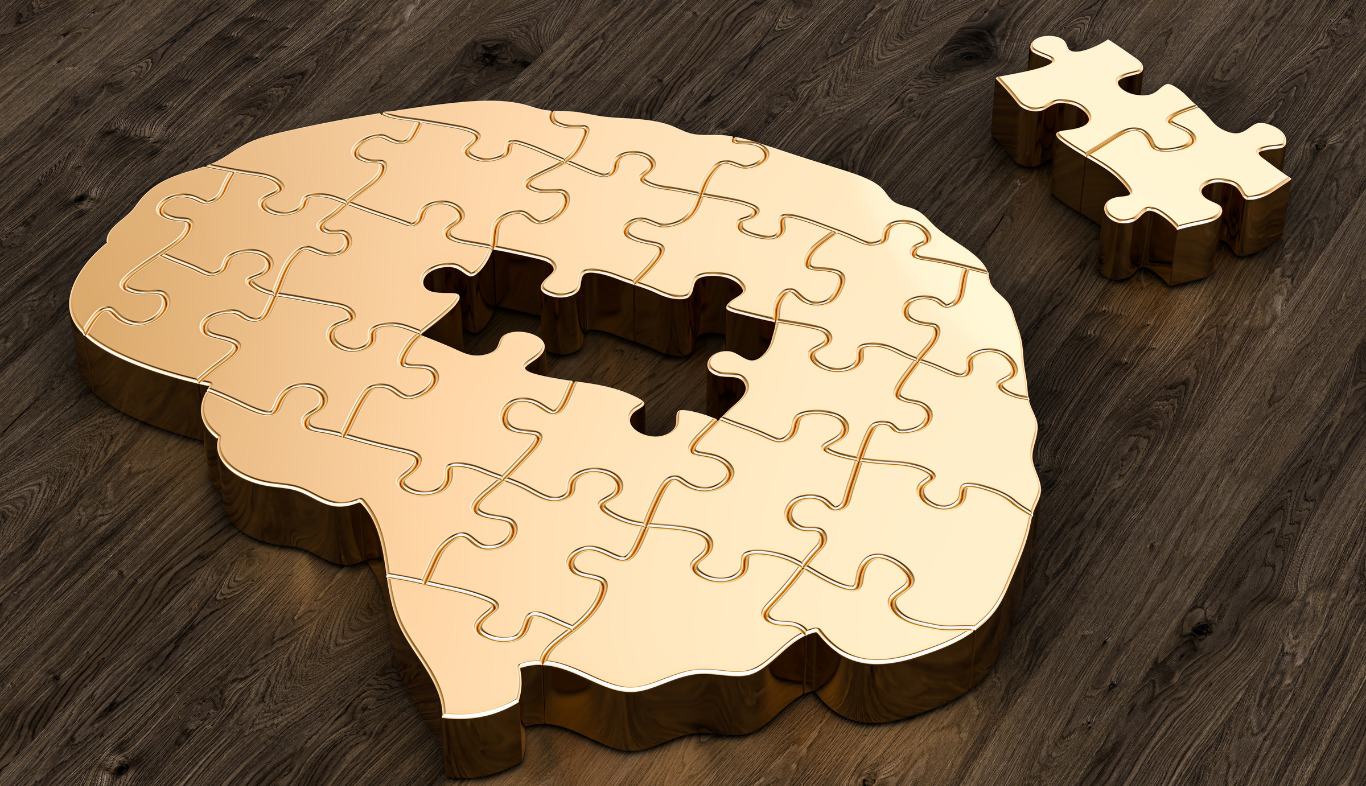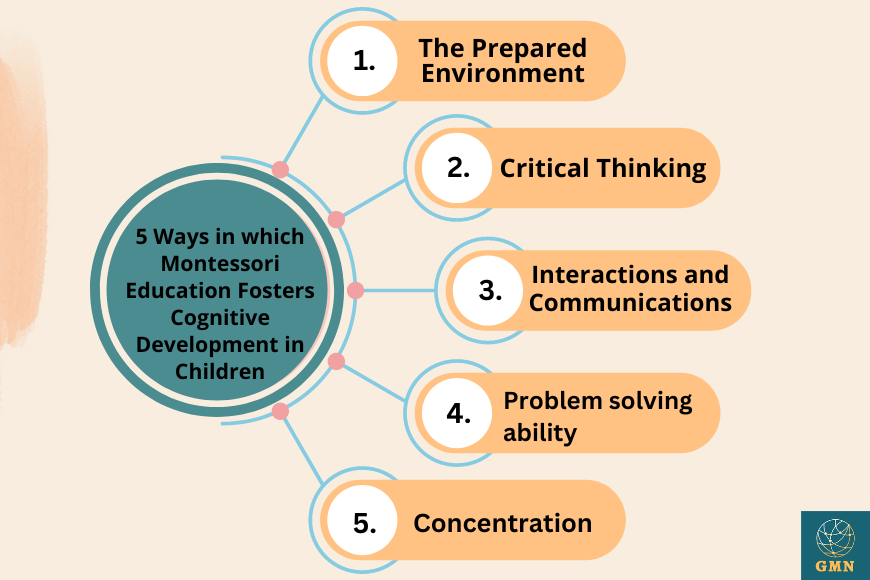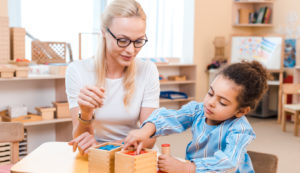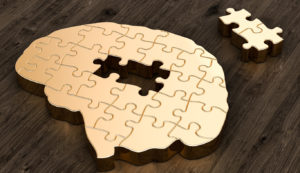How wonderful it is to know and understand that the entire world is a child’s classroom environment. When a child’s classroom learning goes beyond the four walls, the knowledge becomes infinite. And this happens in Montessori education.
Children, in the Montessori environment, learn to see themselves as global citizens and notice the splendor of varied cultures and traditions. They tend to see the world as their classroom. And with this approach, the Montessori Method fosters comprehensive cognitive skills in the children – imaginative thinking, problem-solving skills, and a desire to learn and challenge oneself.
What is Cognitive Development?
“The child’s development follows a path of successive stages of independence, and our knowledge of this must guide us in our behavior towards him. We have to help the child to act, will, and think for himself. This is the art of serving the spirit, an art which can be practiced to perfection only when working among children.”–Maria Montessori in the Absorbent Mind.
Cognitive skill is the ability of a person to approach problems and get solutions. The way we perceive, process, store, and use information is referred to as cognitive ability. (Bacanlı, 2001; Harrison & Rainer, 1992)
During early childhood, the children build the strategies of these aspects in individual ways and their performance capacities are measured with their thinking ability and not their skills. (Gander & Gardiner, 2001)
To develop cognitive ability, it is essential and advantageous that classroom curriculum should follow the pattern that fosters this development in a precise way and at the right age. It is important to provide the right foundation for the child’s success later in life.
What is The Montessori Theory?
The Montessori Method of Education is based on the guiding principles of freedom, order, choice, peer teaching, free movement, creativity, independence, self-correction, and intellect. Montessori principles, Montessori activities, multi-aged classrooms, and long work periods categorize the Montessori method (Lillard, 2006) that promotes cognitive development and nurtures the child as a responsible, thoughtful adult.
Maria Montessori believed that learning and growing are inseparable and created materials that use real actions and objects to translate abstract ideas into concrete form. Children in multi-age classrooms, learn by observing and interacting with these materials and peers. Long uninterrupted working periods help them concentrate and solve problems.
How do Montessori Education Foster Cognitive Skills?
Dr. Maria Montessori created instructional materials and a learning environment that cultivated the innate drive of the children to learn. The children are given the freedom to select their learning materials or activities from the shelf and long work periods help them explore and think more about solving the problem. In other words, a Montessori curriculum includes many such resources and activities that are helpful for cognitive development.
A child needs to get involved in day-to-day activities and interactions to stimulate cognitive development. Here are 5 aspects of the Montessori curriculum that play a key role in fostering the development of cognitive skills in children.
- The Prepared Environment: Montessori education helps the child internalize the surroundings and explore the materials around them. Children are motivated to learn when they are given materials that are appropriate for their skill development in a prepared environment which is essential for cognitive development. Constructive triangles, for instance, are presented for making varied shapes out of them. Brown stairs are used to let the child comprehend varied sizes.
- Critical Thinking: Books and hands-on learning materials available in the Montessori curriculum encourage critical thinking. Educators provide age-appropriate books and activities to children that foster cognitive development by increasing vocabulary and critical thinking. Sensorial and practical life activities help the child build semantic memory, concentration, and problem-solving skills. A child tends to attain higher critical thinking, which in turn fosters cognitive development in children.
- Interactions and Communications: Montessori education encourages cooperative play or imaginative role play among children of mixed-age groups. It is a seamless way to develop strong interactive skills as they interact, tutor, and learn together. The younger children get help from the older ones in their work, whereas the older ones refresh their concepts and develop leadership qualities. This endeavors the children for better self-construction and enhances brain development.
- Problem-solving ability: In a Montessori environment, children are encouraged to organize their thoughts, solve problems and learn new concepts at their own pace. The long work periods provide ample time to explore and learn the concept. They learn to take turns, follow directions, and build strategies. Children are also stimulated to recognize and correct their own mistakes. Development of such abilities lays the foundation of problem-solving, good-decision making, and analysis skills, which are part of cognitive development.
- Concentration: Montessori emphasizes side-by-side work, which fosters concentration in children as they develop new learning skills. Resource materials like transferring activities, color sorting activities, threading and sewing, and many such activities, help a child enhance focus and concentration. It also develops vocabulary and independence.
Impact of the Above Aspects on Cognitive Development
With the correct educational base and active education like Montessori education, the child is nourished with the understanding of the following:
- The children start to comprehend the surroundings.
- The more they understand the concept and the process, the more questions children ask. This improves their thinking abilities.
- Children find the logic behind the concept and build interest in the process.
- Children show interest in research, which improves vocabulary, problem-solving skills, and decision-making skills.
- Children also develop better social and emotional quotients.
Tips to Develop Cognitive Skills in Children
Apart from the resources that are offered in Montessori Classrooms, some basic tasks done with teachers or parents also foster cognitive development.
- Allow the children to make mistakes to help them learn better. Celebrate their success.
- Provide them with a variety of activities on a shelf. It promotes independence and decision-making skills.
- Children love to imitate adults. Invite them to do age-appropriate household chores such as cleaning leaves, folding clothes, and cleaning tables to build their autonomy and confidence.
- When introducing any activity, do not rush in with a solution. Let the child build interest and solve the problem at their own pace.
- Build a child’s vocabulary and interest by asking questions like “what happens next?”, “what is this?” or “how will we solve this problem?”.
- Introduce the child to open-ended activities and encourage them to solve problems with a different perspective.
- Expand the child’s interests by offering them books, crafts, games, or excursions based on their interests. For example, if a child is fascinated by cars, provide them with additional books, crafts, games, and excursions related to cars.
Final Words
Intellectual growth or cognitive development is enabled by freedom, structure and order, exposure to the surroundings, and a peaceful environment. When children are offered new tasks, lessons, and opportunities, they tend to develop not by remembering but by understanding.
Montessori education is well suited for the development of cognitive skills from early childhood days. In a Montessori classroom, not only features of basic education but also lessons in practical life, sensorial, language, art, science, culture, and music are all part of a diverse curriculum. These lessons are delivered in a progression from simple to complicated and from concrete to abstract. This fosters the development of cognitive skills rapidly.
References
- Courtier, P., Gardes, M.-L., Henst, J.-B. V. der, Noveck, I. A., Croset, M.-C., Epinat‐Duclos, J., Léone, J., & Prado, J. (2021). Effects of Montessori Education on the Academic, Cognitive, and Social Development of Disadvantaged Preschoolers: A Randomized Controlled Study in the French Public-School System. Child Development, 92(5), 2069–2088. https://doi.org/10.1111/cdev.13575
- Denervaud, S., Christensen, A. P., Kenett, Y. N., & Beaty, R. E. (2021). Education Shapes the Structure of Semantic Memory and Impacts Creative Thinking. NPJ Science of Learning, 6, Article 35. https://doi.org/10.1038/s41539-021-00113-8
- Denervaud, S., Gentaz, E., Matusz, P. J., & Murray, M. M. (2020). Multisensory Gains in Simple Detection Predict Global Cognition in Schoolchildren. Scientific Reports, 10(1), Article 1394. https://doi.org/10.1038/s41598-020-58329-4
- Gentaz, E., & Richard, S. (2022). The Behavioral Effects of Montessori Pedagogy on Children’s Psychological Development and School Learning. Children (Switzerland), 9(2), Article 133. https://doi.org/10.3390/children9020133
- Kayılı, G. (2018). The effect of Montessori Method on cognitive tempo of kindergarten children. Early Child Development and Care, 188(3), 327–335. https://doi.org/10.1080/03004430.2016.1217849
- Novak, M., & Schwan, S. (2021). Does Touching Real Objects Affect Learning? Educational Psychology Review, 33(2), 637–665. https://doi.org/10.1007/s10648-020-09551-z
- Osborn, E. (2022). The Effects of Cognitively Engaging Exercise on Children’s Executive Functioning [Master’s thesis (Action research report), St. Catherine University]. https://sophia.stkate.edu/maed/473










